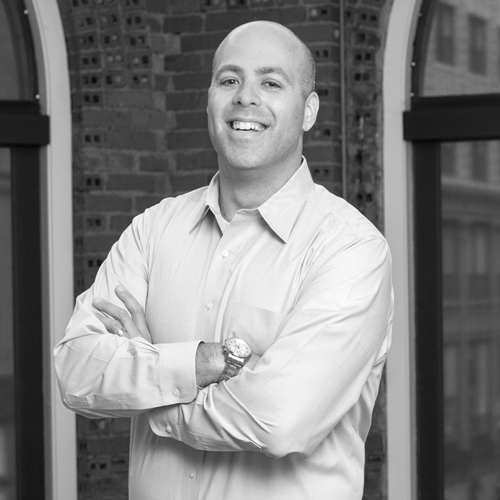
Fifteen years ago, human resources vet Walter Chesley jumped from a decades-long career in B2B servicing to an industry he knew little about: healthcare HR. With new, exciting opportunities in biotechnology—at the time, the Human Genome Project was hurtling toward completion—Chesley recalls being hungry to “learn, grow, and experience” something new.
Since then, he’s held top HR roles in the Twin Cities’ best-known hospitals, treatment centers, and medical-equipment companies, including Children’s Hospitals and Clinics of Minnesota, Universal Hospital Services, and Hennepin County Medical Center, where he currently serves as chief human resources officer. Today Chesley’s motivation for staying in the medical field is similar to why he embraced the move in the first place: to help transform a rapidly evolving industry.
“The dynamic that is unfolding, with respect to the Affordable Care Act, is giving those of us in healthcare the opportunity to work with insurance plans and providers to keep the population well,” he says. “It’s an exciting field with real-time impact—both from a healthcare-policy standpoint and a patient-outcome standpoint.”
Yet, Chesley notes, today’s healthcare industry is burdened by waste: an unconscionable amount of time, energy, and money is misallocated every year in medical centers across the country. To mitigate waste at Hennepin County Medical Center, Chesley has set forth a broad swath of initiatives designed to make the organization leaner by 2020.
“It’s an exciting field with real-time impact, both from a healthcare-policy standpoint and a patient-outcome standpoint.”
In practice, Hennepin’s “go lean” push will take many forms, and it will reach every corner of the medical center. From a managerial perspective, “lean” means being more efficient with meetings and respectful of an employee’s time and workload. From a technological perspective, it means modernizing IT infrastructure and putting digital initiatives at the forefront of project proposals. From a clinical perspective, it means lessening patient visit times and designing a referral framework where patients who are working with a network of specialists can use a primary-care doctor as a point person and a partner on the road to recovery.
Meanwhile, from an HR standpoint, “lean” means designing processes for every departmental action and minimizing deviation from those processes.
“The greatest role HR can play is helping the organization with a strategy—and articulating that strategy from the top level down to the base-level employee,” Chesley explains. In other words, getting employees to “understand what tools and resources they need to do their jobs and eliminating inappropriate steps in all processes” allows for a better, more effective workplace.
“It’s about doing things smarter, not harder,” he adds.
As such, Hennepin is ramping up staff-training opportunities, and it will increase its dependence on learning tools, such as visual management boards, and process mapping throughout departments.
Chesley is also strengthening Hennepin’s workforce, which includes about 600–700 new hires each year and has a 92 percent retention rate, by working with upper management to create clear succession planning. It’s a critical move, Chesley notes, for preparing Hennepin County for an outflux of workers as the baby boomer generation nears retirement.
“The average age of our leadership team is 58; we need to be strategic about what we need two or three years down the road as the marketplace changes, but we also have to put the pedal to the metal to get the next generation of leaders prepared,” he says.
Chesley is also collaborating with local high schools, colleges, and medical schools to recruit and train the workforce of the future. One initiative—STEP-UP Achieve, which was founded by former Minneapolis mayor R. T. Rybak and brought to Hennepin by Chesley—places 16- to 21-year-old Minneapolis-area residents in paid internships. Likewise, the hospital offers advanced fellowship programs in cardiovascular disease, clinical chemistry, critical care, and other specialties.
After all, the objective at the heart of all of Hennepin County’s lean initiatives, Chesley points out, is to have a positive impact on the population it serves. “It’s about building a community for the future,” he says.


